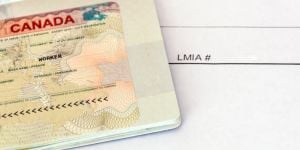
The transportation in Canada is a shared responsibility between the federal, provincial, and municipal governments. Once settled in the country, you can easily get around thanks to an extensive transportation network. More details in this article.
To get around in urban areas, you can choose transportation options such as the subway, bus, taxi, or even bicycle. However, for traveling outside cities—which involves much longer distances—you can take a plane, train, or coach. In coastal regions of Canada, like British Columbia and the Atlantic region, ferries are a popular mode of transportation. Be sure to choose the safest mode of transport while comparing prices in advance.
Coaches in Canada
Canada has a fairly extensive bus network that allows for national, regional, and even cross-border trips to the United States. Taking a coach can be faster than taking the train. You can travel long distances at affordable rates. Intercar and Orléans Express are the main carriers in Quebec. In Ontario, you will also find Coach Canada buses. You can use a comparison tool like busbud.com or checkmybus.fr to get an overview of prices and different companies.
Useful links:
Taking a taxi in Canada
Most Canadian cities have a taxi service. However, it's important to know that fares are regulated, usually based on destinations, and that fares are non-negotiable. Major urban centers generally have at least three taxi companies.
Every taxi driver has an identification that certifies the legality of their activities, as well as a compliance certificate for their vehicle with the city's safety standards. If you want to benefit from a preferential rate for any destination, you can discuss it with the driver from the start.
The Uber service is available in most major cities in Canada.
Flying in Canada
To fly within and outside of Canada, you must have a valid passport. Authorities may ask you to prove your legal status in Canada. The various Canadian airlines offering flights include Air Canada, Westjet, Air Transat, and Sunwing Airlines, among others. Flair Airlines is known for its low-cost domestic flights. In the event of a flight cancellation or delay, you may be entitled to certain guarantees, depending on the damage and your ticket. In case of an issue with a Canadian airline or an airline serving Canada, you can contact the Canadian Transportation Agency. It should be noted that domestic flight fares, especially for regional flights, are high compared to Europe. In Quebec, residents of remote areas can obtain a partial reimbursement of their travel expenses.
Useful links:
Taking the train in Canada
Trains are one of the least used modes of transport in Canada. Canadian trains are generally slow compared to those in other countries, but they are very comfortable and non-smoking. There are several comfort categories, similar to airplanes, from economy class to VIP class. Wi-Fi and an online entertainment service are sometimes available on board.
To travel across the country, you can opt for various passes that provide unlimited travel for a certain period. Canadian rail companies offer discounts for children of various age groups, as well as for seniors, upon presentation of an access card.
Nationally, Canadian trains are operated by the VIA Rail company. There are also other rail networks across the country, including the Toronto Transit Commission (TTC) in Toronto, GO Transit in the Ontario region, among others. The TTC manages urban transport in Toronto (subway and bus), while GO Transit offers rail and bus services in the Greater Toronto Area. These services are not intercity like those of VIA Rail but rather public transit networks.
Useful links:
Taking the ferry in Canada
There are over 180 different ferry routes in Canada. At least one ferry route is currently operated in each province. A well-known example is the Quebec-Lévis ferry. This ferry service connects the cities of Quebec and Lévis, offering breathtaking views of Old Quebec and the Saint Lawrence River. The crossing takes about 12 minutes and is very popular. To learn more about this transportation system, visit the Canadian Ferry Association website.
Renting a car in Canada
Given the size of Canada, many people prefer to rent a car to get around. There are car rental companies almost everywhere, both in cities and at airports. Some individuals also rent out their vehicles on platforms like Turo and Getaround.
Car rental rates vary depending on the rental company. It is recommended to compare prices before making your choice. You will need to present a credit card in your name to take possession of the vehicle.
Unless you are already covered by your credit card, you will need to add insurance to the base price of your rental. Additionally, most companies impose additional fees on drivers under 25 years old.
Good to know:
The minimum age to rent a car in Canada is generally 21, although some companies, like Hertz, allow rentals from 18 years old only in Quebec. Drivers aged 21 to 24 are often subject to additional young driver fees. However, you are not required to present an international driving permit: your home country driver's license may suffice, especially if it is written in French or English. The speed limit in cities is 50 km/h and on highways is 100 km/h, but this can vary by province. Many parking areas are paid. Be sure to read the traffic signs carefully before parking and adhere to the Highway Code.
Useful links:
Carpooling in Canada
Some people prefer to opt for carpooling. You just need to sign up on a site offering such services. You can offer a ride or sign up as a passenger on an existing trip. There are also private group listings on the social network Facebook. Carpooling allows you to make significant savings instead of renting a car individually.
Useful links:
Buying a used car in Canada
You might consider buying a used car if you can afford it. To do this, simply browse classified ads in newspapers or on the Internet. You can buy your vehicle from a private seller or a dealership. The latter option is recommended as it ensures the vehicle has been inspected and meets quality criteria. Additionally, dealerships may offer advantageous financing solutions. Before making a purchase, take the time to test drive the vehicle and compare different offers. Besides the purchase price, you will need to insure and register the vehicle. The exact amount can vary significantly depending on the type of vehicle, location, and driver profile.
Useful links:
We do our best to provide accurate and up to date information. However, if you have noticed any inaccuracies in this article, please let us know in the comments section below.








